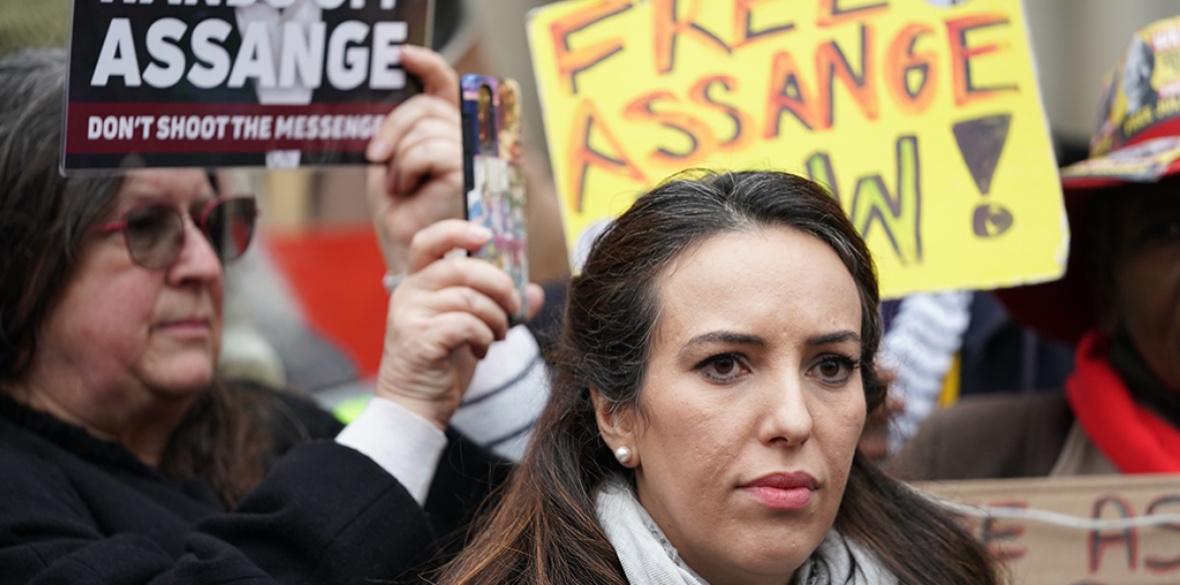This is the last article you can read this month
You can read more article this month
You can read more articles this month
Sorry your limit is up for this month
Reset on:
Please help support the Morning Star by subscribing here
WIKILEAKS founder Julian Assange has been nominated for the Nobel Peace Prize for his fight for human rights, democracy and press freedom, it was confirmed today.
German MEP Martin Sonnenborn responded to an appeal by Mr Assange’s partner Stella Moris ahead of today’s deadline for nominations.
“Julian Assange has made unique and undeniable contributions to peace by lifting the fog of war,” Ms Moris said urging support for the journalist who remains locked up in Belmarsh high-security prison.
Mr Sonnenborn said that he nominated Mr Assange “for his fight for human rights, democracy and press freedom.”
In his submission, the German MEP said that he was returning the 2012 Nobel Peace Prize “mistakenly” awarded to the European Union for its contribution “to the advancement of peace and reconciliation, democracy and human rights in Europe.”
The Norwegian Nobel Institute which issues the global award confirmed the nomination of Mr Assange had been successfully submitted.
Last year the Nobel committee came under fire for “a sin of omission” after it failed to include Mr Assange as a joint recipient of the Peace Prize which was given to journalists Maria Resa and Dmitry Muratov.
They were award the prize because of “efforts to safeguard freedom of expression,” which the committee said is “a precondition for democracy and lasting peace.”
But former Nobel Peace Prize committee chair and former Norwegian prime minister Thorberg Jagland said the award “must raise pressure on the demand to free Assange and pardon [Edward] Snowden.”
Mr Assange could face 175 years behind bars in the United States under the draconian Espionage Act after he revealed crimes and atrocities committed in Iraq, Afghanistan and elsewhere.
Press freedom groups say that he is subjected to a “politically driven prosecution” for publishing details exposing the world’s rich and powerful elites.
Last year it was revealed that US and British spooks colluded in a alleged plot cooked up in the White House to kill Mr Assange on the streets of London.
Despite this, a British court ruled that the US could extradite him to stand trial there, overturning a previous decision blocking such a move on grounds he was a suicide risk.
Last week the High Court gave him permission to appeal against extradition to the Supreme Court, which must agree to accept the case before it can proceed.
It could take months for the court to decide whether to hear Mr Assange’s arguments. In the meantime his mental health continues to deteriorate.
UN special rapporteur Nils Melzer has described the conditions he is held in as torture.









